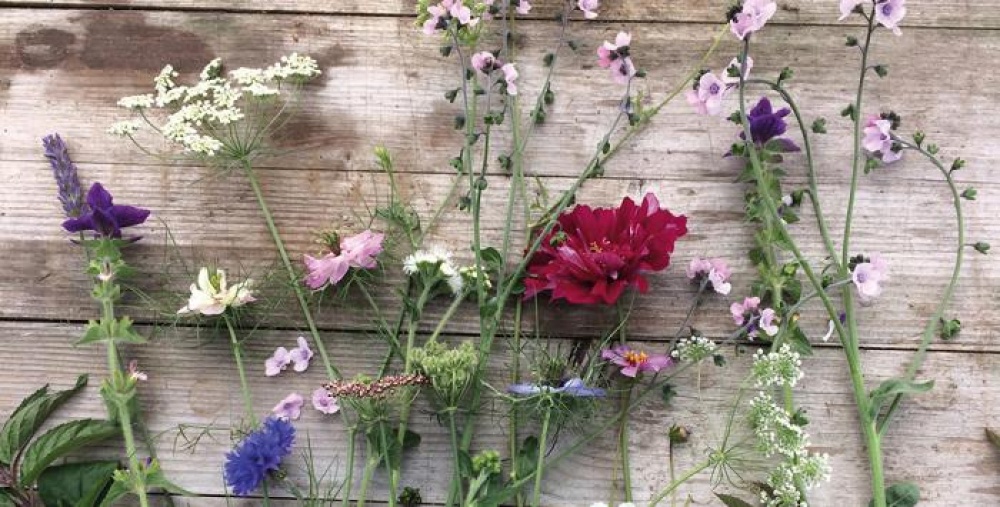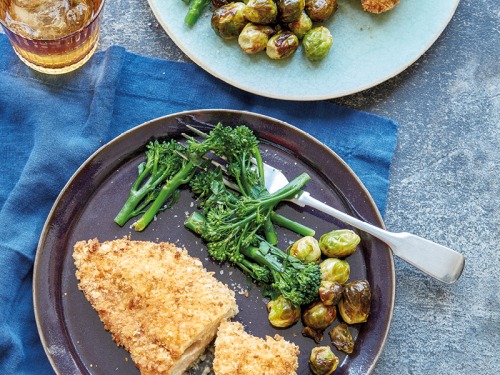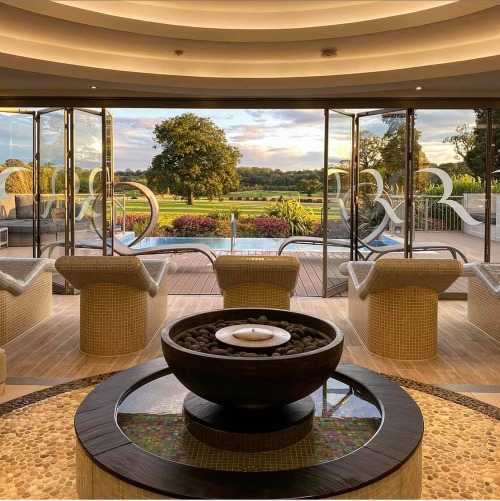Florist Shares Her Joy of British Blooms

Caroline Beck was working as a journalist when she discovered her love of flowers – something that helped her navigate a difficult time in her life. She now runs Verde Flowers and is sharing her joy of British blooms with others
‘At that point I had a young baby and my partner was looking after her, so I was working full-time, but also getting up in the night,’ she explains. ‘I was living on a gorgeous little terrace just outside Lanchester in County Durham, and I had a long strip of garden, almost like an allotment garden. I didn’t know anything but luckily I had a mixture of people who lived on the terrace who really knew their stuff and they gave me bits I could grow.
‘Although I didn’t have much time, it was really therapeutic. Then I had another child and we needed a slightly bigger house, so we moved to Wolsingham. At that time, I had taken redundancy from the BBC but was still freelancing – making radio programmes and doing the garden writing – and I had two children.
'I thought I had to do something to stop me going nuts, so I got an allotment. Eventually it became known as the inedible allotment because I started growing more and more flowers. Then people started saying to me, ‘We really love your flowers, could you grow some for a christening or a wedding…’. So I did, and I really enjoyed it. About four years ago, I suddenly thought, I wonder if I can actually turn this into a business? It was perfect timing as it hit the wave of British flowers coming back into fashion.’
Caroline’s business is Verde Flowers, and using seasonal, British flowers is at the heart of everything she does. Like the movement towards consuming locally-grown and produced food, the flower movement is heading in the same direction and Caroline explains that many people sell their flowers though farmers’ markets, in the same way as producers sell food. It’s all about concentrating on the seasons.
‘It’s partly about taking back that control,’ she says. ‘One of the things I try and do is tell people that I may not be able to get them peonies in November, because peonies grow in May/June, but I can get them fantastic stuff which will look beautiful – like hellebores, Christmas box and snowdrops. I’m growing lovely, old-fashioned varieties that people won’t have heard of. Yesterday, I cut a load of Chinese forget-me-nots, and you normally think of English forget-me-not as being blue but these are tall and a pinky-purple colour – they’re fantastic.’
Caroline recently took part in a dazzling display of flowers at Durham Cathedral – showcasing British blooms in all their glory. ‘Obviously I spend a lot of time in small country churches and stately homes, where people are getting married,’ she explains, ‘so we often dress beautiful buildings.
'Obviously weddings are just for one day, and I thought, wouldn’t it be great if we could do something in Durham Cathedral where people could see us working, in situ, and come and ask us about it. We could tell them about the fact we don’t need to import nine out 10 flowers, which is what we currently do in this country – we grow fantastic flowers here, why aren’t we supporting the home-grown industry?
‘People loved it. For example, they didn’t now that in the North of England all the way through the 19th and early 20th century, we had some of the best flower growers in the country. A lot of that has died out due to globalisation – people got used to having everything all the time, cheaply.
'The idea of British flowers is about a certain wildness, and somebody said to me – and I think this is the best way to describe the look of my flowers – that they look like they’ve come in from the outside and they’re almost struggling to get back outside again.’
Caroline finds the way flowers communicate with people fascinating. Whether it is for a happy or a sad occasion, they can be a very personal thing. She was asked by a woman to supply some flowers when her brother-in-law died. They didn’t want standard white roses because it was January and they were out of season, but he had been a keen walker and environmentalist, and the family wanted something that would reflect his life.
‘We pulled together lots of things we could use from the countryside,’ Caroline tells us. ‘I was growing hellebores, I still had things in the tunnel, we had snowdrops, aconites and all those lovely things. We involved both his daughters and his widow and although it was a very, very sad occasion, we made it rather joyous and decorated the whole church. It’s something creative and constructive, it’s thoughtful – it carries huge amounts of emotion and makes you think of that person without being swamped by grief.
‘Marriage is almost the polar opposite – it’s an absolute joie de vivre celebration of joy and when I do bouquets in particular, very often my brides cry. The photographers come and say, “Will you stop giving them the bouquets because their mascara’s running”.’
Caroline’s passion for what she does is clear, but that doesn’t mean running a business on your own is easy, and it certainly isn’t a nine-to-five job. As well as growing, she has to supply and market her flowers. She explains that growing the flowers is actually the easiest part.
‘It is really seasonal. As soon as the clocks go forward my days start at five or six o’clock. I rent just under an acre from a friend so I’ll go over there and make sure everything is watered and looking good. I normally do all the cutting on a Wednesday night and then I do any deliveries to florists on a Thursday.
'Weddings I will normally sort out on a Friday – Friday is a big, hit-the-ground-running day. The weddings are usually Saturday and then Sunday I normally collapse. In the summer months, all the way through until September, I’ll only have one day off a week.
‘Growing the flowers is the easy part – I’ve been doing it for 20 years, so I know what I’m doing [laughing]. But then there is all the invoicing, the social media to do, you also have to think about what you’re going to grow next year – you’ve got to keep an eye on fashions, colours in particular. As it’s just me, I’ve got to spread myself quite thinly – I haven’t got a team of people to help.
‘This may apply to men as well, but I think women are a pretty self-punishing lot. If we’re mothers or working, we’re all very busy and we’re under huge amounts of pressure. When I was bringing up my two small kids and trying to work in a high-pressure job, I often felt pretty rubbish about how well I was coping with things.
'I used to go out to the allotment and see something I’d grown from seed 12 weeks before, and it would flower perfectly. I could bring it home, put it in my vase or give it to somebody else and I’d think, I’ve been able to do that. It made me feel really good about myself and I’ve always kept that with me.’







